Meth Withdrawals: The Onset and Symptom Timeline

Overdose deaths from methamphetamine increased by 7.5 times between 2007 and 2017. Rehabilitation programs incorporate therapies designed to identify and modify detrimental thought patterns and behaviors that contribute to addiction. Additionally, aftercare services and group support are crucial, offering a community of encouragement and accountability to foster long-term recovery. Short-term physical effects include increased heart meth abuse rate and blood pressure, which can be dangerous, especially for people with underlying heart conditions. It can also raise body temperature, leading to sweating, dehydration, and potentially dangerous overheating.

Medical Reviewer
For instance, a small amount of crystal meth that costs maybe ten dollars could allow one or two people to stay high and keep partying for a full day or longer. Other reasons meth addicts cite for seeking out the drug include rapid weight loss and the way what is alcoholism it lowers inhibitions and increases libido. Some people turn to crystal meth after their tolerance to a different drug has grown so much that they can no longer get high from that substance. Crystal meth can not only provide the high the addict is looking for, it also costs less and lasts longer. Also known as ice, crank, or crystal, meth can be cheaply made by simply mixing together a number of chemicals, many of which are interchangeable. For this reason, this highly addictive substance is often called a bathtub drug.
- Open sores that won’t go away or that become infected is a common sign of meth addiction, and may turn into lesions if not treated.
- Methamphetamine is an intense upper known for producing a stimulating, euphoric high like cocaine – but lasting significantly longer.
- As a powerful stimulant, meth alters brain function by releasing large amounts of dopamine, creating an intense sense of euphoria and leading to dependency.
- If you have a loved one struggle with meth addiction, call American Addiction Centers (AAC) today.
What Physical and Mental Effects Does Meth Have Throughout the Day?
Meth is more dangerous than other stimulants because a larger percentage of the drug remains unchanged in the body and stays present in the brain longer. The drug is toxic to nerve terminals in the brain and meth can destroy the brain cell synapses where dopamine is released, causing mood disturbances and dependence on the drug. Prolonged meth use changes the brain chemistry of users, destroying the wiring in the brain’s pleasure center, and makes it increasingly difficult to experience any sort of pleasure without the drug. In addition to behavioral changes, chronic meth use can also cause irreversible damage to bodily systems and blood vessels in the brain, which can result in a stroke. A person addicted to meth will experience a wide range of withdrawal symptoms upon quitting meth abruptly, or reducing use.
Signs & Symptoms of Meth Addiction
If you have serious psychological symptoms, you may hurt yourself or someone else. Medical detox can help you manage your withdrawal symptoms comfortably and in a safe place, lessening your chances of relapse. Methamphetamine is a man-made stimulant that's been around for a long time.

Other Effects and Risks of Meth Abuse

If crystal meth comes as more of a powder, it’ll have a bitter taste like other kinds of meth. If you have a loved one struggle with meth addiction, call American Addiction Centers (AAC) today. Let one of our experienced and compassionate admissions navigators listen to your story, answer your questions, check your insurance benefits, and help you start treatment today.

Cognitive and Emotional Changes
Some of the negative effects of meth use, including hallucinations or movement issues, may go away in the weeks or months after you stop using the drug. But some changes may take years or longer to resolve or never get better. Meth is often made with multiple toxic chemicals that put undue stress on a person’s organs. Since the liver and kidney are responsible for filtering and processing these chemicals as waste, a person who uses too much meth can cause these organs to permanently shut down and stop working. Common signs of meth addiction are organ failure — particularly of the liver, kidney, lungs, brain, and heart. The chemicals in meth can lead to imbalances in the brain that cause disorganized thoughts and thinking processes.
- Users are well aware that such feelings can quickly be countered by another dose.
- It can also cause scarring at the injection site and even lead to damaged or collapsed veins.
- Comprehensive addiction treatment involves a combination of therapies to address the multiple aspects of addiction.
- In 2016 the number of meth overdose deaths increased by 57% and caused 7,700 fatalities.
How to Live a Sober Lifestyle

Once you do return to work, it's important to create a budget and take steps to safeguard yourself as work stress can be a relapse trigger. Whatever you do, helping others will help you to feel better about yourself and your situation, and it will help to keep you focused on your recovery. Additionally, helping others can provide you with a sense of purpose and meaning in your life, which can be very helpful in recovery. In addition, exercise can help improve your sleep, which is vital for overall health and recovery. It may sound like a cliché, but hobbies are a great distraction and can take our attention away from the stresses of everyday life. One of the most important aspects of long term sobriety is a dedication to helping others.

Top Alcoholics Anonymous (AA) Discussion Meeting Topics
While new activities may be beneficial, you should not use them to fill the void left by the addiction. The idea is to find balance in your life by engaging in productive activities in a non-compulsive manner. They like to savor life and get the most out of living, especially after hitting rock bottom and having such a hard time in life. Turn one on in the car on the way to work or on a walk or run.
- Before, drugs and alcohol abuse were your outlets for managing anger.
- It can help your brain and body recover from years of destruction.
- Focus only on one step at a time, starting with the ones below.
- This includes past romantic partners who may have contributed to substance abuse in the past.
What is Sober Living and How Can It Help You?
A sponsor is usually someone else who is in recovery who can help to show you what it was like for them and how they learned to get and stay sober. When you celebrate your progress, you reinforce the behavior that got you there and boost your confidence in continuing your journey. Family and friends should be a cornerstone of your support system.
Celebrate Achievements to Reinforce the Benefits of a Sober Life
There are so many myths about sober life being boring and unfulfilling, and it can be daunting for anyone. Around 80% of those who find long-term sobriety had at least one relapse. A relapse can sneak up on you; most of the time, you don’t recognize the signs. However, research shows that you can find the path to long-term recovery and sobriety when you develop a healthy and well-balanced lifestyle.
Tips for Sober and Clean Living
For one thing, writing things out, even to yourself, makes them seem more binding and official. But more importantly, you can look back on these events and learn a lot from them, particularly your moods, emotions, and state-of-mind when these things happened. People in recovery should make every effort to minimize the amount of negativity in their lives. This also means not hanging around people whom you don’t feel you can be honest with, and vice versa.

It helps so you do not forget what it used to be like, and start slipping back into old ways. Because drugs and alcohol are so powerful, it is helpful to believe there is something more powerful that can help you through it. Many people find that faith in a”Higher Power” helps get them through the day. By believing in something greater than themselves, they give over their problems to something stronger. However, many people do find that spiritual practices help them on the road to recovery, Prayer and meditation can help soothe the void inside that you used to try to fill with booze.
The Benefits of Living a Sober Life

We also use different external services like Google Webfonts, Google Maps, and external Video providers. Since these providers may collect personal data like your IP address we allow you to block them here. Please be aware that this might heavily reduce the functionality and appearance of our site. Several smartphone apps offer ways to connect with others who are going through the same things you are. In addition to guidance and support, some of the apps also can help you get immediate help from your network or find a ride to a support group meeting. If you want amphetamine addiction treatment to learn more about the sober curious movement, read this blog post next.

Many people use substances to numb the suffering and pain in their lives, leading to other unhealthy behaviors. Getting sober is difficult and the path of recovery is fraught with temptations. Therefore, staying sober requires understanding what these risky situations are in one’s life and staying away from them.
Final Thoughts on Living a Sober Lifestyle
- Depending on the type of dependency, PAWS can last from six months to two years after you stop using drugs or alcohol.
- Take it step by step, and discover how living clean can be more fun, fulfilling and joyful than you ever imagined.
- Social pressure can be a significant challenge for those living a sober life.
- The symptoms involved in PAWS can be a barrier to recovery if you're not careful.
- However, research shows that you can find the path to long-term recovery and sobriety when you develop a healthy and well-balanced lifestyle.
Self-care is one of the aspects of life grossly neglected during periods of substance use, as substance use takes over everything else in is life better sober life. However, in recovery and maintaining long-term sobriety, practicing self-care is something very important. Our dedicated professional staff is here to guide you or your loved one on the journey to lasting recovery, offering support every step of the way. Take the extra time you need to relearn the skills needed to be happy in your daily life as a sober person. Relearning living skills while at a sober home protects you from just being thrown back into society, where you are expected to be high functioning right away.
Navigating Relationships and Society
Recovery involves planning, which comes with treatment and rehabilitation. However, long-term recovery and staying sober require staying committed to the recovery plan. However, long-term sobriety is more attainable when you have help. Support can come from a counselor, your sober living peers, sober friends and family, support group members, church friends, and even on-line communities. Addiction recovery is tough work, and it’s not uncommon to experience slip-ups before achieving complete sobriety.
The Potential of Cannabidiol as a Treatment for Psychosis and Addiction: Who Benefits Most? A Systematic Review
This medicinal cannabis strain is anti-anxiety, and anti-inflammatory, and significantly helps those who experience pain regularly. Research is polarized regarding cannabis withdrawal syndrome, as many feel that cannabis addiction is not possible. However, some frequent marijuana users have reported feelings of withdrawal after stopping heavy use. As with most cannabis-related issues, more research is needed, and it greatly depends on the individual. Hemp oil has a higher CBD content than marijuana-derived CBD, and many CBD products contain hemp-derived CBD.
Legal Considerations in the Use of CBD
In order to be successful with this, it’s imperative that you go through a detox or rehabilitation program. The CBD will help curb the desire to take the drugs, but won’t be enough to fix the underlying addiction. This is useful for addictions because it lowers the release of dopamine while under the effects of the drug. Addiction is considered a psychological disorder involving a compulsive desire to do something that has negative impacts on the body. We discuss how CBD oil is used to help drug users break the cycles of addiction.
Try a FREE 500mg CBD Oil:
- Some CBD manufacturers have come under government scrutiny for wild, indefensible claims, such that CBD is a cure-all for cancer or COVID-19, which it is not.
- That said, there are reasons to believe that cannabis works differently than other habit-forming substances.
Just like if you went for a long walk on a hot day, you would crave to take a drink of cold water. Substance addiction can make you feel like you can’t live without the substance. When a person is addicted to a substance, these natural reward functions in the brain can work against you, reminding you that you want the substance when you is cannabidiol addictive know logically that it would not be good for you.
- Taken collectively, CBD shows promise in the treatment of cannabis dependence as it reduces craving and withdrawal in almost all studies.
- CBD is thought to bind to CB2 receptors, which are more common throughout the immune system than CB1 receptors, which are more specific to the central and peripheral nervous system.
- While more human studies are needed, animal research indicates CBD may help protect against neurodegenerative processes.
- CBD may have the capacity to alleviate positive, negative, and cognitive symptoms in schizophrenia, as well as craving and withdrawal in SUD.
- Not scheduling a substance means that it is not subject to strict international controls, including for production and supply.
Preclinical studies on CBD and addiction
- In conclusion, the question of whether you can get addicted to Cannabidiol finds a reassuring answer in the wealth of scientific evidence and user experiences.
- Researchers of an animal study published in the Journal of Experimental Medicine found that it significantly suppressed chronic neuropathic and inflammatory pain.
- Heavy, long-term marijuana use may also cause the body to produce increased dopamine over time, which can activate the body’s reward system.
- Federal law requires that hemp-derived CBD products contain less than 0.3% levels of THC.
- When THC use decreases, the CB1 receptor repopulates within the central nervous system.
Only one study assessed the effects of the treatment with medicinal cannabis for patients with a psychotic disorder and a comorbid cannabis use disorder. The eCB system appears an interesting target for schizophrenia, SUDs, and their comorbidity, due to the implication of the eCB system in their pathophysiology and the beneficial effects of CBD in both disorders. However, one may expect that CBD treatment may be most effective in a subgroup of patients, for example patients who show alterations in the eCB system or have a specific symptom profile. CBD may restore an imbalance in the eCB system, which may result in clinical improvement. In addition, this review examined whether there are specific subgroup of patients with schizophrenia, SUD, or both that may benefit the most from CBD treatment.
The main objective of this review is to systematically examine the existing preclinical and clinical evidence on the effects of CBD on addictive behaviors. While CBD does not appear to be addictive and may have some benefits, one large-scale review concluded that there was not enough evidence to support the use of CBD as a treatment for mental health conditions. Some CBD manufacturers have come under government scrutiny for wild, indefensible claims, such that CBD is a cure-all for cancer or COVID-19, which it is not. We need more research, but CBD is proving to be a helpful, relatively non-toxic option for managing anxiety, insomnia, and chronic pain. In numerous studies, CBD was able to reduce the number of seizures, and, in some cases, stop them altogether. Epidiolex, which primarily consists of CBD, is the first cannabis-derived medicine approved by the FDA for these conditions.
If you’re concerned about CBD causing issues with your prescriptions, read our blog post on CBD and medication interactions, including a list of prescription medications CBD may interact with. THC, for instance, binds to the brain and body’s CB1 and CB2 endocannabinoid system (ECS) receptors. Unfortunately, the effects of THC intoxication include paranoia or anxiety. Without proper microdosing, anxiety patients may accidentally do more harm than good. Whichever the case may be, research suggests CBD helps increase sleep quality. A 2019 experiment in The Permanente Journal examined psychiatric patients who experienced anxiety or poor sleep.
- But, if you’re lucky to live in a state that has legalized recreational use, you can walk into a store and buy it — as long as you’re 21 or older.
- It was found to not only reduce the number of seizures, but in some cases stopped them entirely.
- It’s beneficial for patients with IBS, migraines, and those needing pain alternatives for neuropathic symptoms.
- We need to have at least some traffic flowing through to function properly.
- They suggest that CBD may lower the likelihood of developing cocaine, methamphetamine, cannabis and nicotine use disorders and could also help prevent relapse after a period of detoxification and sobriety.
In order to reverse opioid addiction, we need to taper off the drug slowly and allow the opioid receptors to regain their normal function. We need to have at least some traffic flowing through to function properly. If the wall ever fails (you miss a dose of the drug), anybody and everybody will come rushing across the border. The guards aren’t skilled enough to stop them anymore, bringing on immense pain.
Why Do I Get Aggressive After Drinking? Expert Insight and Advice
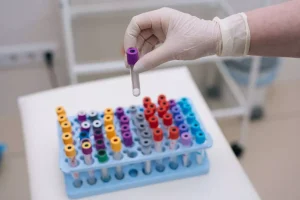
If you live with underlying anger challenges, for example, it may not be as noticeable when you’re sober because your frontal lobe allows you to manage your emotions and your behaviors. When you drink alcohol, those inhibitions are lifted, and if you’re feeling angry, you’re more likely to express it and do so in an exaggerated way. Specifically, it found that problematic drinkers may be more likely to attend to aggressogenic stimuli while intoxicated, and that is, they were more likely to experience certain cues as aggressive.
Psychological Effects of Ecstasy: Short-Term Bliss and Long-Term Consequences

The immediate effects include relaxation, impaired reflexes, and altered mood, while long-term use can cause dependence and addiction. The environment in which someone consumes alcohol can significantly impact their behavior. Environmental factors play a crucial role in shaping how individuals react to alcohol, particularly when it comes to aggression.

Psychological Causes of Alcoholism: Unraveling the Complex Web of Addiction
Many insurance plans cover alcohol and anger treatment, including therapy, counseling, and rehab programs. Coverage varies depending on the insurer and the type of plan, but most policies include substance abuse treatment and mental health services. It’s important to check with your provider to understand the specifics of your coverage, such as outpatient or inpatient care, therapy sessions, and medication. Some policies may also cover support groups or anger management classes as part of a comprehensive treatment Alcoholics Anonymous plan.
- They are probably dealing with their own negative emotions about your behaviour.
- You’d fixate on the negative and miss cues, like the person quietly apologizing, or their expression showing that they felt bad for running into you.
- Additionally, alcohol can become a habitual way to escape emotional pain or difficult situations, leading to dependency and addiction over time.
- For numerous individuals, alcohol serves as a coping mechanism, offering temporary respite from underlying stressors, anxieties, or unresolved traumas.
- Fortunately, people who become irrationally mad when drunk can work to prevent and treat their behavior.
- Alcohol consumption essentially turns off some of the switches in this control center.
How to Prevent Alcohol-Related Aggression
Remember, quitting a substance cold turkey can lead to health issues, so it’s best to enlist professional help. While anger is an emotion you experience when you feel threatened, aggression is a hostile behavior that results in physical or psychological harm to yourself or others. Some individuals exhibit “trait anger,” a personality trait that means they continually look for triggers that make them angry. Hangovers or withdrawal from alcohol can worsen anxiety symptoms, especially among people who drink heavily or those with alcohol use disorder.
- The stress-reducing effects of alcohol often make people believe there are no real consequences for their actions, which leads to confrontations, fights, or displays of aggression.
- They first consumed alcohol and were asked to recognize the emotions of different faces on a computer task.
- For more information about support options available, don’t hesitate to reach out through our contact page.
- Since people often turn to alcohol as a means of self-medication, any further aggravation will be likely to lead to even more alcohol consumption.
- For individuals already dealing with anger issues, alcohol can intensify and magnify these underlying challenges.
Recognizing Personal Triggers and Developing Healthy Coping Mechanisms
This link is miscellaneous, involving both physiological and psychological factors. Beyond its physiological effects, the association between alcohol and anger can affect the mental health of an individual. As a depressant, alcohol slows central nervous system activity, limiting inhibitions and promoting impulsive behaviors – including anger issues. From residential treatment to outpatient therapy, they’re bound to find something that suits them and considers every facet of who they are during treatment. That means addressing the alcohol use disorder and the anger together, like the closely linked complications they are, and not just one or the other.
People with ADHD and Addiction: The Fascinating Connection
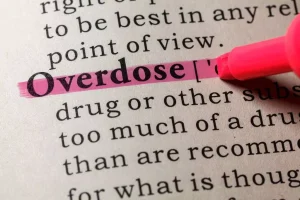
Many people may naturally become angry or upset when drinking, but it’s not necessarily their fault. Sometimes, people with alcohol use disorders have an unhealthy relationship with alcohol due to specific genetics. Continue reading to learn more about the link between alcohol and anger, including which risk factors exist, how alcohol-related aggression can be alcoholic rage syndrome dangerous and more.
- Alcohol and personal health have been in the news lately amid a U.S. surgeon general advisory that even moderate drinking increases cancer risk.
- In the US, about 30% of murders are alcohol-related, and that number seems to be growing.
- Some people experience anxiety or panic attacks along with their hangovers the day after consuming too much alcohol.
- This might involve practices like mindfulness meditation, regular exercise, or engaging in creative pursuits.
- It also inhibits another neurotransmitter, glutamate, which regulates mood.
Anger Treatment Options
This means that after having a drink, some people may be less able to see things from another person’s point of view. They may have less tolerance and patience for others, which can lead to angry outbursts. When combined with other evidence-based therapies, such as cognitive behavioral therapy (CBT), MAT can help prevent relapse and increase your chance of recovery. Groups like Al-Anon or Al-Teen are available to help support people who have been affected by a loved one’s alcoholism.
Amphetamines: Types, effects, addiction, and treatment
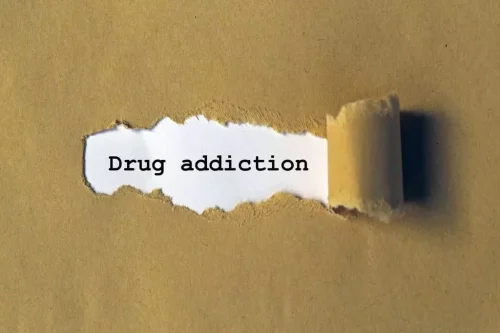
This is not the same as substance dependency — the physical symptoms of tolerance and withdrawal. “Addiction” is the term for long-term behavioral, physical, and social changes a person may experience as a result of substance misuse. This scene was reported by cross-referencing public records, confidential law enforcement reports, recordings, photographs and interviews. For example, surveillance photos show the make, model, license plate number and color of the car Skitz drove from Odessa to Fort Worth on Jan. 21, 2013. That information was verified using Amphetamine Addiction registration data from the Texas Department of Motor Vehicles and compared against dated field reports filed by federal agents the next morning. Dialogue between the characters is primarily based on a recorded account Carol provided to federal agents less than 48 hours after arriving in Fort Worth.
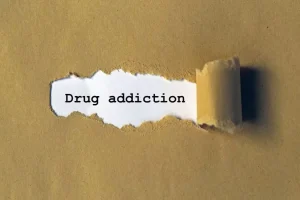
Find Amphetamine Addiction Treatment
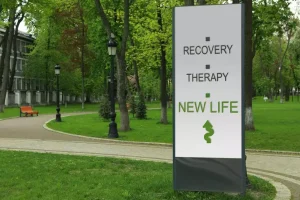
The MDMA comedown is a short-term crash that happens after a single use of the drug, usually the day after taking molly, while withdrawal refers to the long-term effects of quitting after prolonged use. While some experts argue that MDMA is less physically addictive than substances like opioids or alcohol, its psychological grip can be just as strong. Breaking free from this dependence requires time, support, and often professional treatment to address both the physical and emotional aspects of ecstasy withdrawal. Ecstasy withdrawal symptoms are tied to how the drug impacts brain chemistry. When someone takes MDMA, it causes a flood of serotonin, dopamine, and norepinephrine.
- It can lead to physical and mental health problems, strained relationships, financial difficulties, and legal issues.
- Likewise, significant comorbidity (e.g. psychoses) may impact the ability to remain in ambulatory care during periods of treatment for AMPH/MA withdrawal or treatment.
- You can use SAMHSA’s Behavioral Services Locator to search for treatment centers.
- Target pharmacotherapies have considered the mechanism of action of AMPH/MA, which affects neurotransmitters through a number of mechanisms.
Study Selection and Characteristics
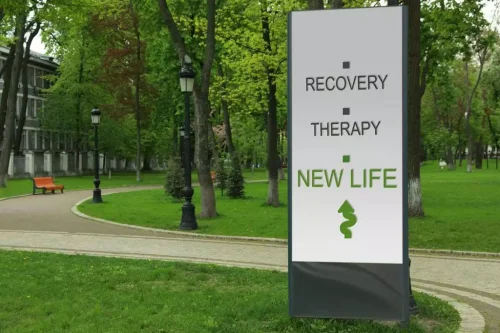
We want to Drug rehabilitation make sure that you're as comfortable as possible throughout this process. This first step can appear daunting at first, although you can be assured that you'll be in the best place for getting your addiction under control and continuing your recovery journey. After you've discussed your addiction and decided what goals you want to achieve during addiction treatment, a tailored treatment plan built around your specific circumstances will be arranged.
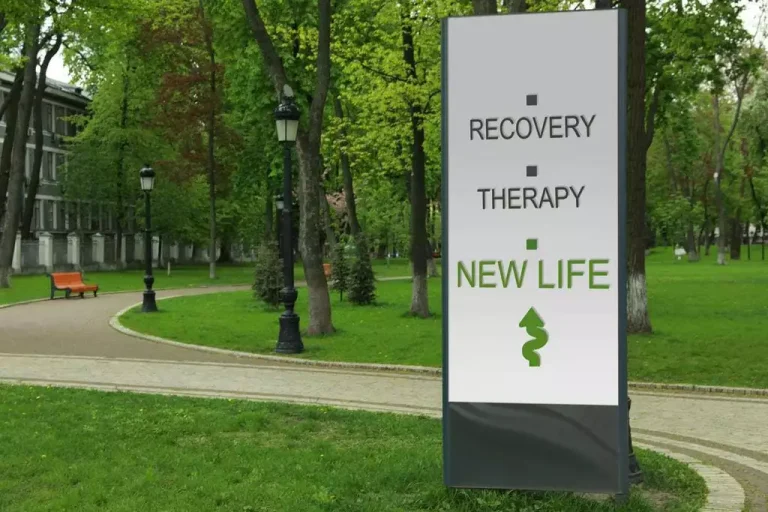
Data extraction
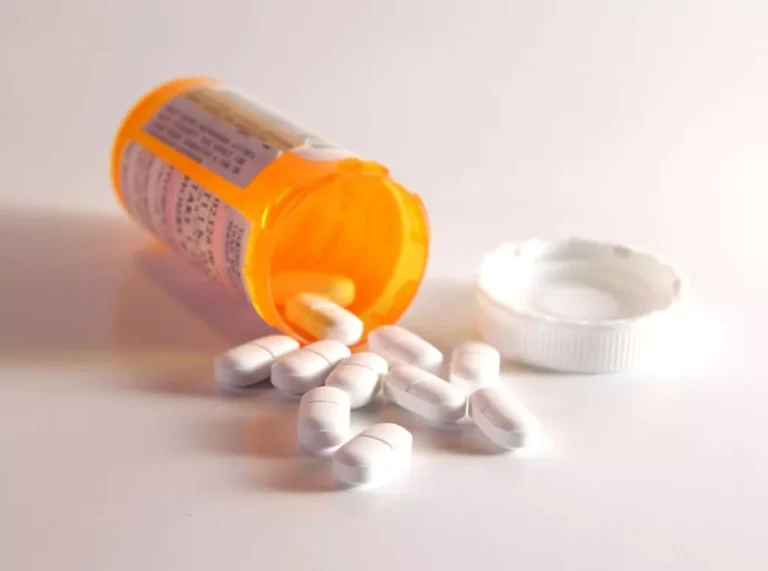
If you or a loved one is misusing stimulants or other drugs, treatment is available in various formats and with the use of myriad therapies. Formal diagnosis of a stimulant use disorder can only be made by a healthcare professional.10 However, it’s helpful to understand the criteria used for diagnosis. During detox, you'll receive 24-hour medical and nursing support, within a safe and understanding environment.
Despite this perceived positive image, the effects of an amphetamine addiction on your health and other aspects of your life can be equally as devastating.. The National Institute on Drug Abuse suggests that one of the most effective treatments for amphetamine addiction is the use of a Matrix Model which heavily emphasizes behavioral therapy. Studies examining the efficacy of pharmacotherapy alone versus combined medication and psychosocial counselling are required to better understand the role each treatment modality may have. Provision of client-centred care requires future work to address the need to better understand concepts of treatment matching or stepped care.
Other names for amphetamines
- The drug (to a lesser extent) acts as a dopaminergic and adrenergic reuptake inhibitor, and in higher concentrations as a monoamine oxidase inhibitor (MAOI) 1, 21.
- Our team of consultant psychiatrists and addiction experts, some of whom are also in recovery themselves, provide an unrivalled insight and approach towards your recovery from amphetamine addiction.
- However, it is not well-documented yet if BCBT is superior to pharmacological treatments for amphetamine abuse or a combination of the two treatments can work better.
- Here we look at the types of amphetamines, their effects, potential for addiction, and treatment options.
- Psychological symptoms of amphetamine addiction can range from mood swings and irritability to paranoia, anxiety, and hallucinations.
- Amphetamine combination drugs such as Adderall are also widely prescribed to treat ADHD.
Amphetamine users may also use other drugs inappropriately to manage the side effects of amphetamines. Benzodiazepines, for example, are anti-anxiety agents that may be used to help an individual sleep, but that can also be addictive. As with similar stimulants, methamphetamine is most often used in a "binge and crash" pattern.
